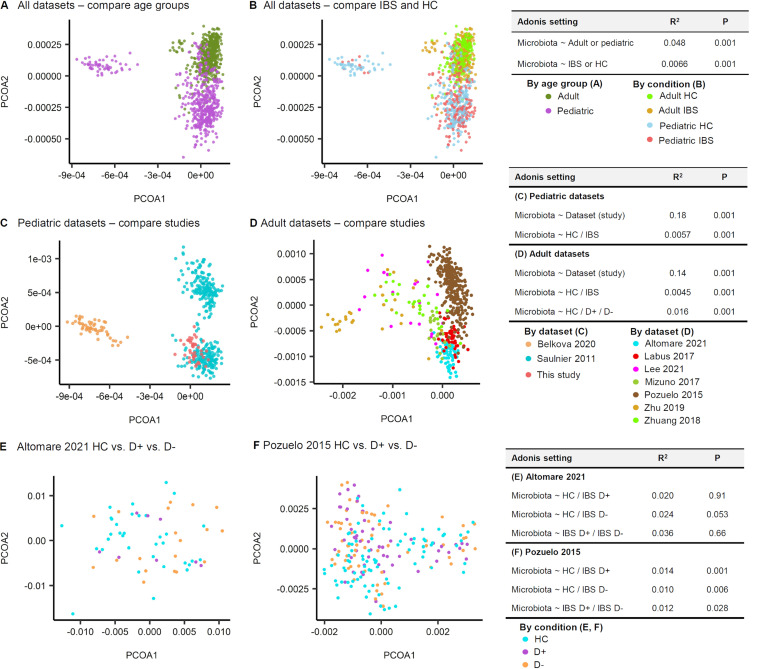FIG 9.
Species compositions of irritable bowel syndrome (IBS) patients and healthy controls (HC). (A, B) Age group (A) was more determinant of species compositions than the disease state (B). (C) Based on the Adonis tests of the pediatric data sets, the effect of data set origin (study-to-study) on species composition was apparent and significant (Adonis, R2 = 0.18, P = 0.001) and stronger than the effect of disease state (HC/IBS) (Adonis R2 = 0.0057, P = 0.001). (D) Likewise, in the adult data sets, the effect of data set origin on the variation of species composition (Adonis, R2 = 0.14, P = 0.001) was stronger than that of disease state (Adonis, R2 = 0.0045, P = 0.001) or IBS subtype (Adonis, R2 = 0.016, P = 0.001). Using the two adult cohorts, which included both the IBS patients with diarrhea (D+) and the IBS patients without diarrhea (D−), the effect of IBS subtypes on the species composition was tested. (E) In the Altomare et al. 2021 data set (10), the divergence of microbiota composition from that of the HC was not observed for D+ patients (P = 0.91), but marginally detected for D− patients (P = 0.053). (F) In the Pozuelo et al. 2015 data set (9), the divergence of microbiota composition from that of the HC was significant in both D+ and D− patients (P = 0.001, P = 0.006, respectively).

